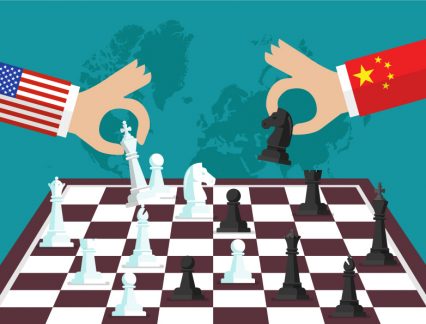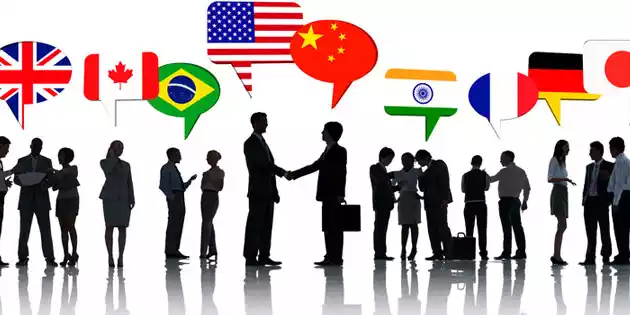In the complex world of international economics, two prevailing theories stand at opposite ends of the spectrum: Free Trade and Protectionism. Free Trade advocates for minimal restrictions on international trade, emphasizing the benefits of a global market with few tariffs and barriers.
This approach is rooted in the belief that an unencumbered flow of goods and services leads to economic efficiency, innovation, and overall consumer benefit.
On the other hand, Protectionism takes a more cautious stance, prioritizing the safeguarding of domestic industries and jobs through the use of tariffs, quotas, and other trade barriers.
This ideology argues that such measures are crucial for defending against unfair foreign competition and maintaining national economic sovereignty. Understanding these two contrasting approaches is essential for grasping the dynamics of international trade and its impact on global economies and societies.
What is Free Trade?
Free Trade is an economic policy that promotes the unrestricted exchange of goods and services between countries. It involves the elimination of barriers such as tariffs, duties, quotas, and other restrictive regulations that could hinder trade.
The philosophy behind Free Trade is grounded in the principle of comparative advantage, a theory posited by economist David Ricardo, which suggests that countries should specialize in producing goods and services they can produce most efficiently, and trade for those they cannot produce as efficiently.
Under Free Trade, countries allow the market forces of supply and demand to determine prices, production, and distribution of goods and services. This unrestricted trade environment is believed to foster competition, drive innovation, improve consumer choice, and lead to more efficient allocation of resources, ultimately benefiting the economies of the participating countries.
Free Trade is often facilitated by trade agreements between nations, such as the North American Free Trade Agreement (NAFTA) or the European Single Market, which aim to reduce or eliminate trade barriers and create larger, more efficient markets.
What is Protectionism?
Protectionism is an economic policy where a country imposes restrictions on international trade to protect its domestic industries. These restrictions can include tariffs (taxes on imported goods), quotas (limits on the quantity of certain goods that can be imported), and subsidies to domestic industries. The main goal of protectionism is to shield local businesses and jobs from foreign competition.
This approach can make imported goods more expensive and less competitive compared to locally produced items, giving a boost to domestic producers. However, it can also lead to higher prices for consumers and potential retaliation from other countries, which can result in trade wars. Protectionism is often contrasted with free trade, which advocates for fewer barriers to international trade.
Economic Implications
The economic consequences of trade liberalization and protectionism remain a subject of debate. Free trade advocates assert that it fosters efficiency, competition, and innovation, resulting in lower costs and a greater selection of goods and services available to consumers. It also lets countries focus on areas where they have an advantage which can lead to higher efficiency and economic growth.
The concept of protectionionism, on its other hand, is designed to safeguard domestic industries and create jobs. It is believed by its advocates to protect producers in the country from competition unfair to them, hinders selling of products at ridiculously low prices, and also helps to support strategic industries. However, critics claim that protectionist policies can cause increased prices, fewer choices for consumers options, and inefficiencies in the allocation of resources.
Free Trade and Protectionism: Each nation must rely on other countries for infrastructure and economic needs; trade between nations has long been part of civilizations’ evolution; however, recently there has been much discussion surrounding both protectionism and free trade among nations – before trying to differentiate the two we must acquire some background on both.
Protectionism:

- Protectionism refers to policies or rules which allow a country to establish trade barriers through tariffs against other nations. Sometimes countries use imports as a tool to protect local producers by disincentivizing importers who purchase cheap commodities to use to close factories producing that commodity locally. At times, protectionist policies may serve to safeguard national interests; however, there have been times when countries protest when faced with non-economic tariffs. India is world renowned for producing exquisite carpets that it exports across several nations – such as Europe and America. Unfortunately, however, America has decided to place obstacles in this trade due to child labor being used when producing these carpets from India.
- One simple approach for curbing imports of goods is raising their cost through tariffs, helping domestic producers compete more successfully on local markets. Another protectionist strategy could involve placing limits on certain commodities so their entry doesn’t destabilize local industries and disrupt domestic economies.
Free Trade:

- The term free trade refers to conditions where there are no impediments between two nations when engaging in bilateral commerce. This can not only benefit both nations involved, but can also promote collaboration and trade across more regions while dispelling suspicion that is often present due to tariffs, sanctions, or embargoes. Free trade cannot be achieved quickly and seamlessly, which is why countries are entering into trade agreements to gradually eliminate artificial tariffs and promote transparency of markets and healthy competition. Nations now recognize there may be others capable of producing certain goods or providing certain services at lower costs than they themselves, yet may excel elsewhere in different areas.
- GATT created the World Trade Organization as a means for nations around the globe to benefit from global commerce, with established guidelines for trade as well as procedures for resolving any disagreements among its members.
Free Trade Vs Protectionism
- Free trade refers to unimpeded international commerce without high tariffs or restrictions, where goods move between borders unencumbered by restrictions. Conversely, protectionism refers to government practices whereby they impose heavy taxes, tariffs or restrictive regulations for items exported by other nations.
- As a result, goods entering the country become less frequent and insignificantly slow down to an almost inaudible trickle. President Donald Trump’s threats of tariffs against some U.S. trading partners are an illustration of his protectionist policies; arguments made by China as well as various U.S. trading partners regarding free trade are an outstanding illustration.
Pros and Cons of Protectionism
- Trump’s defense of protectionism (though he doesn’t use that term) appears sound at first glance. According to “The Wall Street Journal”, there is currently an $830-billion trade deficit between China and the U.S. As reported in June of 2018, President Trump engaged in intensive discussions with Chinese officials regarding market access requirements that will enable American products and companies to export more to Chinese markets (China imposes many restrictions on products exported by U.S. firms into its borders).
- However, this incline is an uncertain slope. Protectionism was tried before by the U.S. through the imposition of massive taxation on European trade partners that resulted in the Great Depression.
- Imported goods saw their prices increase by 5 percent year over year.
- America’s trading partners retaliated quickly by dramatically cutting exports from America.
- Trade decreased significantly around the world and left many nations unable to pay back debts accumulated from World War I.
- Economics scholars continue to debate the effects of the protectionist Smoot-Hawley Act; one economist who passed away, Jude Wanniski, pinpointed it as being at the core of depression.
Free Trade Benefits
- History may appear to tilt towards free trade advocates, with Donald J. Boudreaux of George Mason University’s Hayek Program for Advanced Study in Philosophy, Politics, and Economics believing free trade benefits the global economy positively.
- Free trade has long been seen to increase prosperity for Americans – and citizens in other participating nations – by giving consumers greater access to better quality products at reduced costs, driving economic growth, enhanced efficiency, increased innovation, greater fairness, and increasing overall trade – both imports and exports combined.” As global trade grows exponentially so do its benefits.
- Trade barriers often backfire on those they aim to protect – American consumers and producers. Protectionist policies restrict what Americans are able to buy while increasing prices of clothes, food items, and raw materials used by manufacturers for creating everyday goods.
Free Trade Advantages
- One major drawback of free trade lies within its own logic – increasing trade deficits can have grave repercussions for certain countries and can worsen America’s relationship with virtually all trading partners – according to “The New York Times,” America is currently suffering a growing trade deficit with almost all the nations it trades with as noted by President Trump’s declaration “we lost $800 billion annually”, according to The NYT (with which Trump exaggerated this figure by exaggerating America’s export deficit with China being only “375 billion).
- One dollar lost to the trade deficit, usually caused by free trade, is taken away from U.S. workers and distributed instead to workers in other nations with cheaper labor costs; as these other nations benefit from government aid in creating employment opportunities in America. Each time this occurs it causes one job loss within America as opposed to elsewhere which offers benefits in creating them through government support or otherwise.
Which Is Better, Trade or Protectionism?
- Most economists do not view trade gaps and deficits as money being “lost” to other nations, nor are they particularly worried by them. Trade imbalances can be affected by various macroeconomic variables affecting country growth rates, currency values, and saving and investment rates – for instance, America’s trade deficit narrowed significantly during the Great Recession when national consumption shrunk.”
- “Times” and other proponents believe free trade to be essential to the global economy; some observers argue otherwise, including in America where some believe its effects have been devastating for local markets and economies like ours. According to labor economics professor David Autor and colleagues David Dorn and Gordon Hanson’s analysis found that Chinese imports into our local markets “has had profound ramifications on U.S. wages and labor-force participation rates”.
- Others, such as The National Review a conservative magazine, claim that free trade agreements like North American Free Trade Agreement (NAFTA) have only benefitted America, with 30 million new jobs created since it was signed.
- Debates regarding free trade vs protectionist policies will continue for some time to come, making clear that there will not be an end in sight to their debate any time soon.
Summary- Free Trade vs Protectionism
the difference between free exchange and protectionism lies in their approach to worldwide commerce. Free exchange advocates open markets, negligible duties, and unlimited development of products, pointing to financial effectiveness and worldwide participation. Protectionism, in any case, emphasizes household industries’ security through duties, standards, or endowments, prioritizing self-sufficiency but possibly constraining universal exchange. Whereas free exchange cultivates worldwide interdependency, protectionism looks to protect nearby economies. The choice between the two pivots on adjusting the national interface with broader financial connections.

